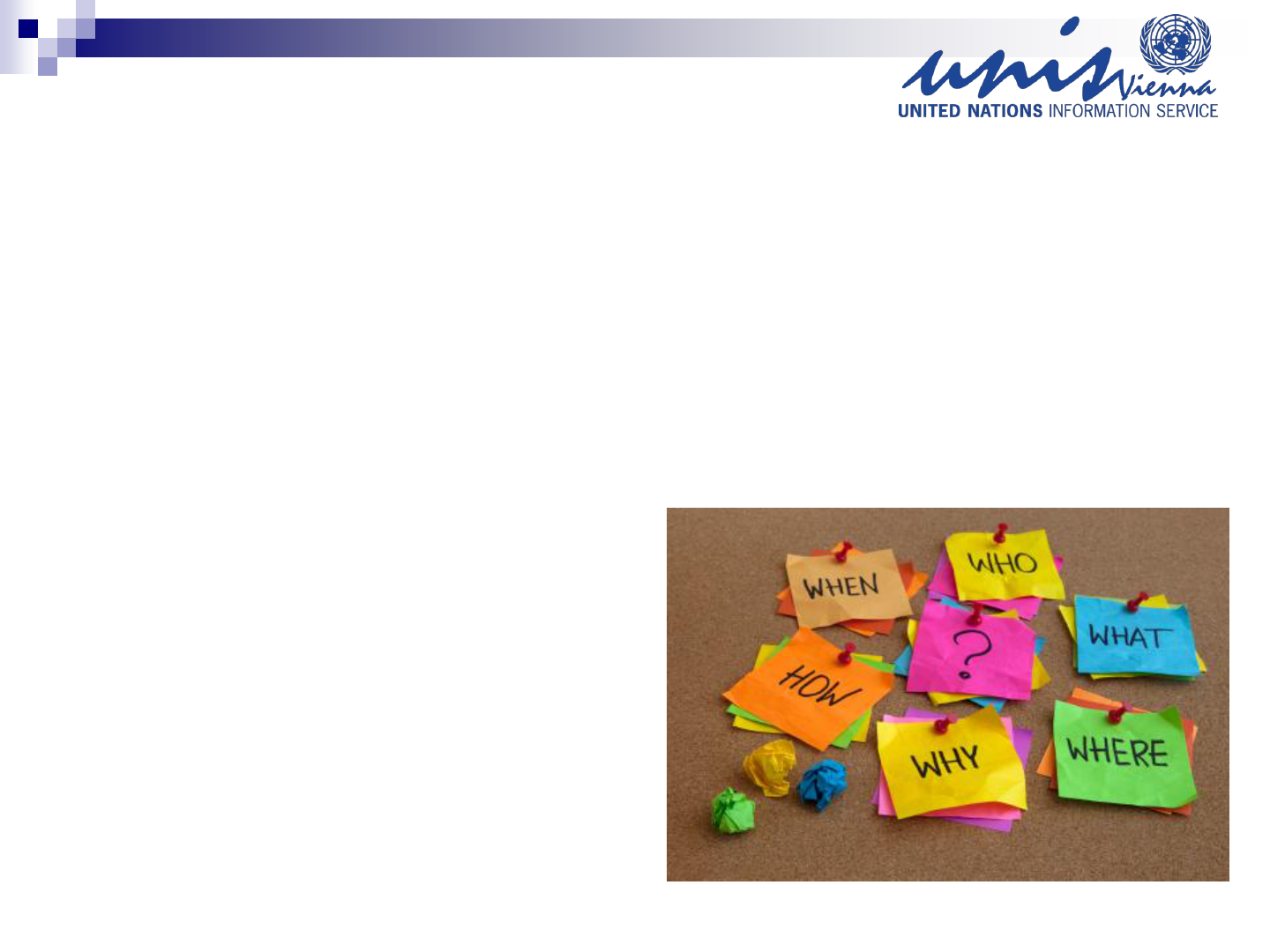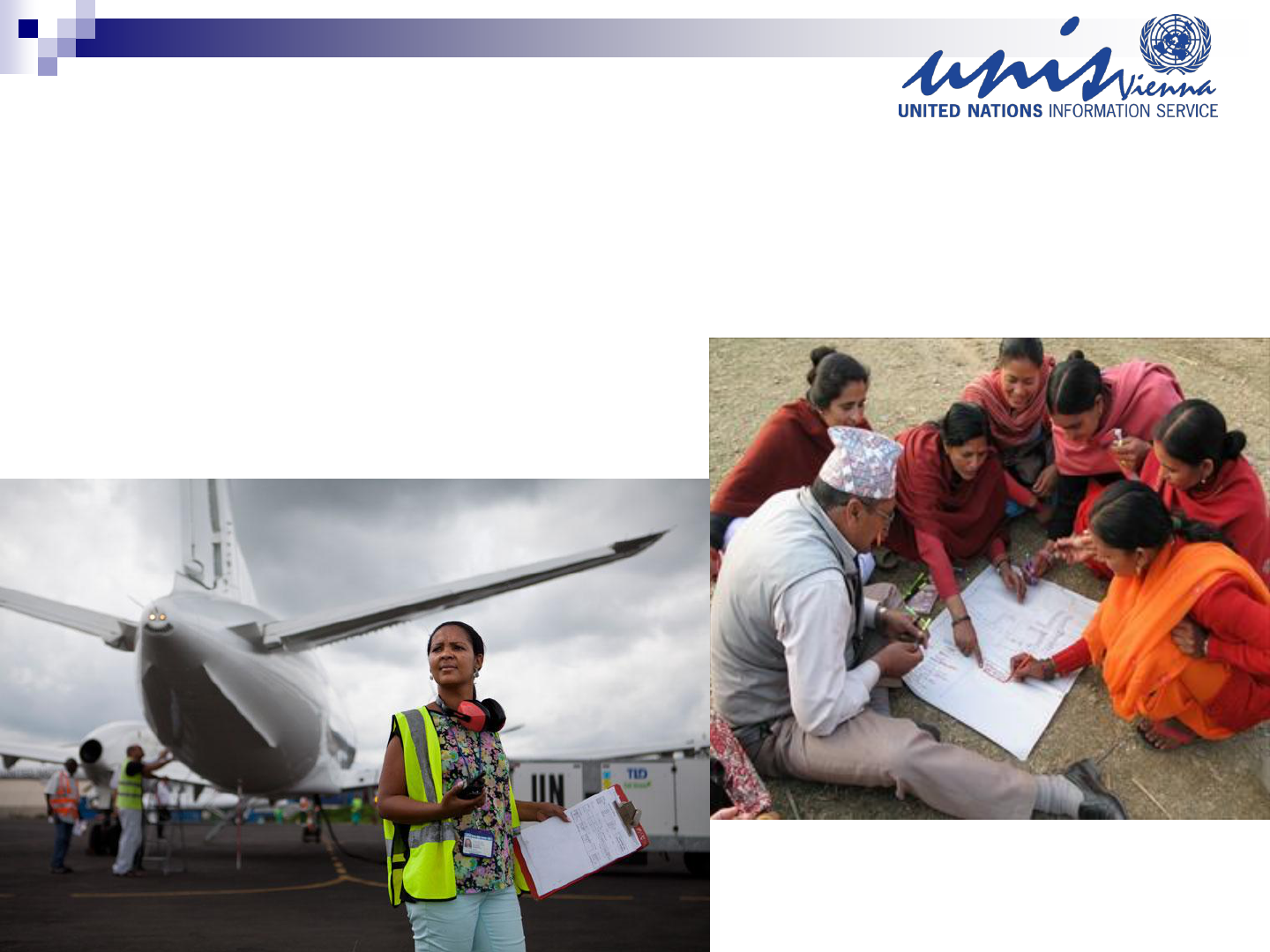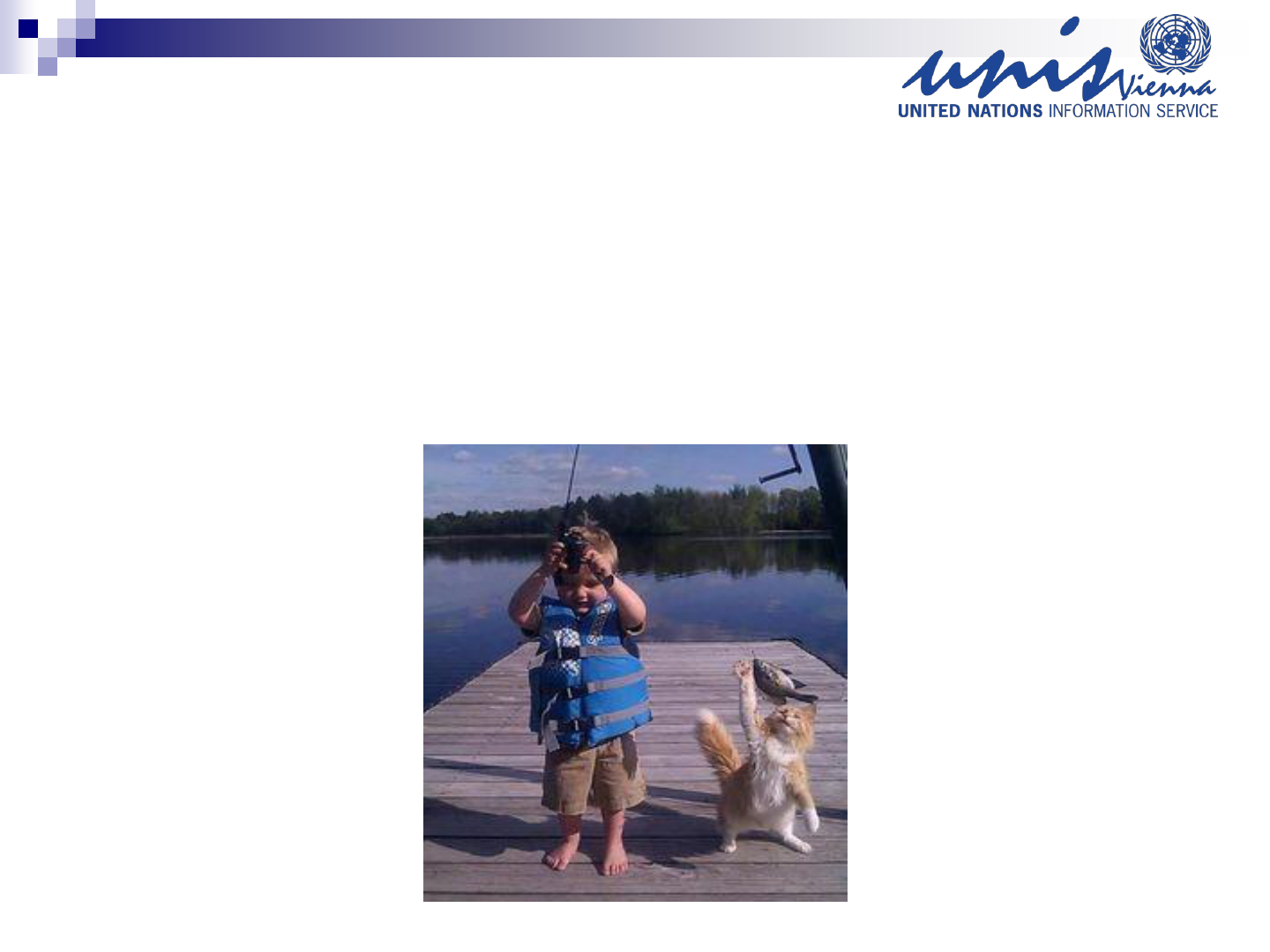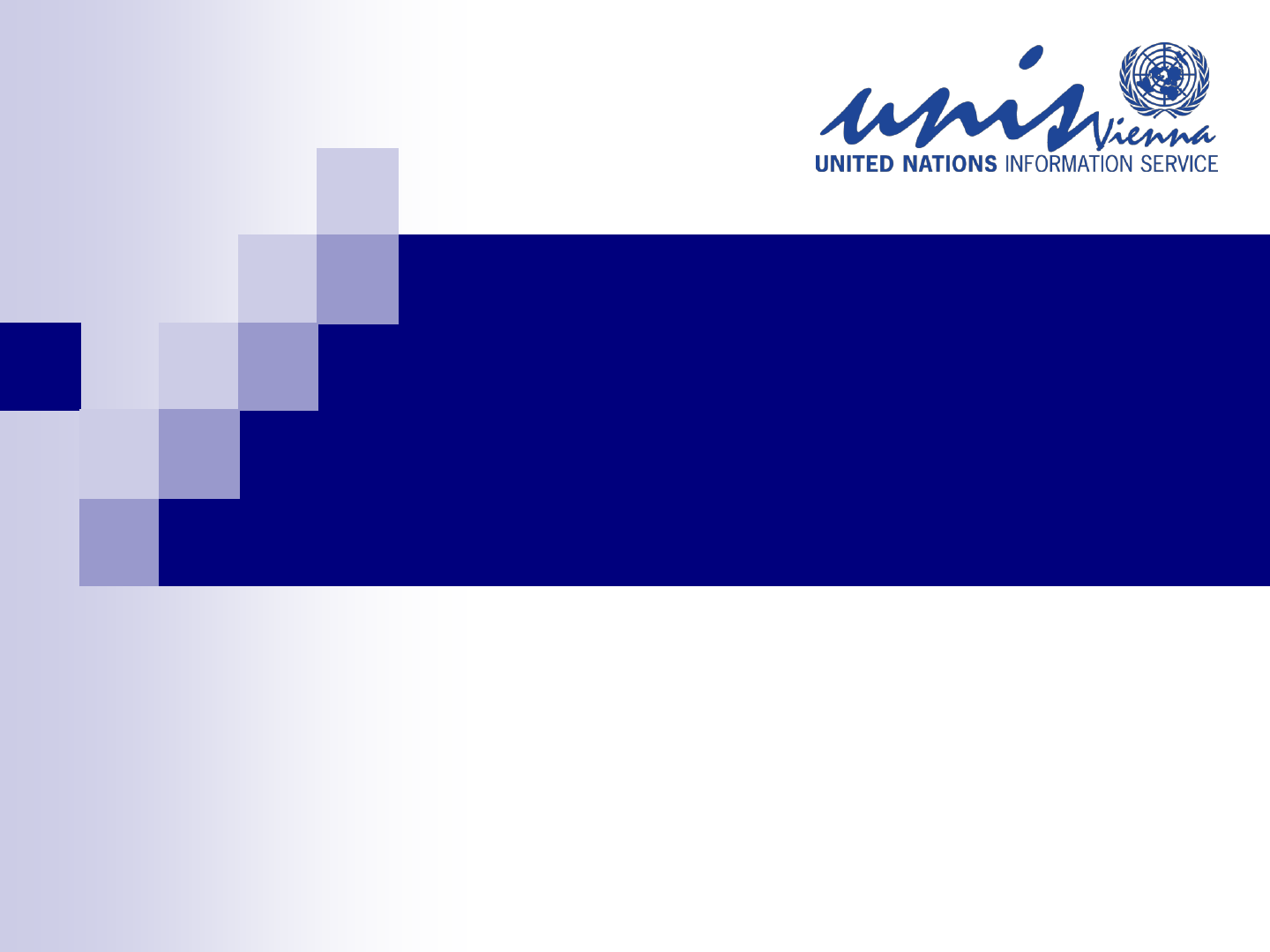
UN YPP 2015
Workshop for participants
Martin Nesirky
Director, United Nations Information Service (UNIS) Vienna
&
Erzsebet VARGA
Human Resources Officer, Recruitment and Placement Unit, UNOV/ UNODC

YPP: the Process
Application
Convocation
Written Exam
Oral Examination
Placement
Assignment, Orientation
and Development

3 3

YPP 2015
Job families:
Administration
Finance
Legal Affairs
Public Information
Social Affairs
Statistics

5 5
Participating Member States
104 Member States invited:
un-represented
under-represented
in-danger of falling under-
represented
72 Member States
Participating

6
Admission
First Screening- Eligibility
Nationality
Age: 32 years or
younger
Education
Language: Fluent
English or French
Experience: No
experience required

7 7
Admission
Second Screening
Criteria for the second screening:
Language Degree Experience

YPP: the Process
Application
Convocation
Written Exam
Oral Examination
Placement
Assignment, Orientation
and Development

Written Examination
Wednesday, 15 December 2015
Overall time: 4.5 hours
Structure:
General paper
Specialized paper

Written Examination: Structure
General Paper: Summary, to be written in either English
or French.
Specialized Paper: Multiple choice questions, essays
and short questions (constructed response items) in
the substantive area, to be answered in any of the UN
official languages.

Format and allocation of points
Written examination (800 points)
General paper (150 points)
Specialized paper (650 points):
- 50 Multiple Choice
- Constructed response items
(Oral exam: 200 points)

Details on written exam
Written examination
General paper (150 points) – text (approx 1100 words
in French or 900 words in English) to be reduced to a
third
Marked by two different external examiners (double blind
marking)
Specialized paper (650 points)
Multiple choice items are marked first by software and are
eliminatory
Other questions are marked by a group of UN experts in the
respective job family based (double blind marking)

14 14
Written Part: What to bring
Your convocation document
E-mail with application number
Original AND photocopy of picture ID indicating
nationality and date of birth
Blue or black pens, pencils, highlighters etc.
Some light food, beverage in clear bottle

15 15
Written Part: What NOT to
bring
Mobile phones (may be sealed before)
Dictionaries
Portable computers
Reference materials
Draft/scrap paper
White-out liquid

Lessons learned and tips
(from participants/examiners in the YPP 2013 and 2014)
Written Exam (1)
Time-keeping/time-management extremely important!!!
Practise hand writing ahead of time. Practice time
keeping.

Lessons learned and tips
(from participants/examiners in the YPP 2013 and 2014)
Written Exam (2)
Do not neglect the general paper – summary writing is
harder than may seem
For summary writing, practise summarizing
UN documents and time yourself

Lessons learned and tips
(from participants/examiners in the YPP 2013 and 2014)
Written Exam (3)
Steps to writing a summary:
1. Read and understand
2. Analyze the structure
3. Select the main ideas
4. Draft the summary
5. Revise and edit

Lessons learned and tips
(from participants/examiners in the YPP 2013 and 2014)
Written Exam (4)
Good summary:
accurately reflects the ideas
contains only the main ideas
is objective
is clear, coherent and concise
is logically organized
is mainly written in the summary writer’s own words

Lessons learned and tips
(from participants/examiners in the YPP 2013 and 2014)
Written Exam (5)
Review Sample Answer booklet on Careers Portal
Judge the value of each question and distribute your
time accordingly
Answer every question – including the multiple choice
questions --even if you are not sure

Lessons learned and tips
(from participants/examiners in the YPP 2013 and 2014)
Written Exam (6)
No extra points for additional answers
Put answers where they are supposed to be
Answer the questions you know first
Articulate and structure your thoughts coherently

Lessons learned and tips
Summary:
Be well rested
Arrive in plenty of time
Follow the instructions correctly
Answer the question!
Manage your time!
Review the “What’s new” page on the Careers Portal
regularly

The YPP Process:
Competency-based
interviews

YPP: the Process
Application
Convocation
Written Exam
Oral Examination
Placement
Assignment, Orientation
and Development

“Past, demonstrated behaviour is the best indicator of
future performance”

26 26
Values and Competencies
Core Values Core
Competencies
Managerial
Competencies
Integrity
Professionalism
Respect for
Diversity
Communication
Teamwork
Planning and
Organizing
Accountability
Creativity
Client
Orientation
Commitment to
Continuous
Learning
Technological
Awareness
Vision
Leadership
Empowering Others
Managing
Performance
Building Trust
Judgment and
Decision-making

27 27
Why competency-based
interviews?
forward-looking
clarify expectations
define future needs
past professional
experiences
behavioral/situational
questions

28
CAR(L) Principle
Context
Actions
Results
Learning

29 29
Preparing and Practising
Be flexible and non-
demanding with time
Prepare
Practise, practise,
practise!

30 30
During the interview: do
Make a good first and last impression
Dress appropriately
Listen carefully
Be specific
Provide concrete examples
Smile!

SAMPLE
JOB
OPENING

SAMPLE
JOB
OPENING

Exercise
Planning and Organizing
Talk about a major event
you organized

Exercise
Professionalism
Talk about your experiences as an Administrative
Officer

Exercise
Teamwork
Describe a successful teamwork work experience

38 38
Exercise
Integrity
Describe a situation where values were threatened to be
compromised


The YPP Process:
after the exams

YPP: the Process
Application
Convocation
Written Exam
Oral Examination
Placement
Assignment,
Orientation and Development

42 42
Available posts for Placement
Regular budget posts at the P-1 and P-2 levels
15 % extrabudgetary posts in field operations
not financed through peacekeeping account

43 43
Successful Candidates
Placement & Reserve Lists
P-1/P-2 placement in any Secretariat duty station
Those who cannot be placed -> will be kept on a reserve
list for 2 years
Candidates who refuse one invitation to interview or
employment offer will be removed from the reserve list.

44 44
Assignment, Orientation &
Development
Initial assignment: 2 years
Second assignment: In a
different duty station
(P-1=>P-2)
Orientation Programme
Mentor Programme

Thank you for your
attention!
www.un.org
careers.un.org
www.unis.unvienna.org



